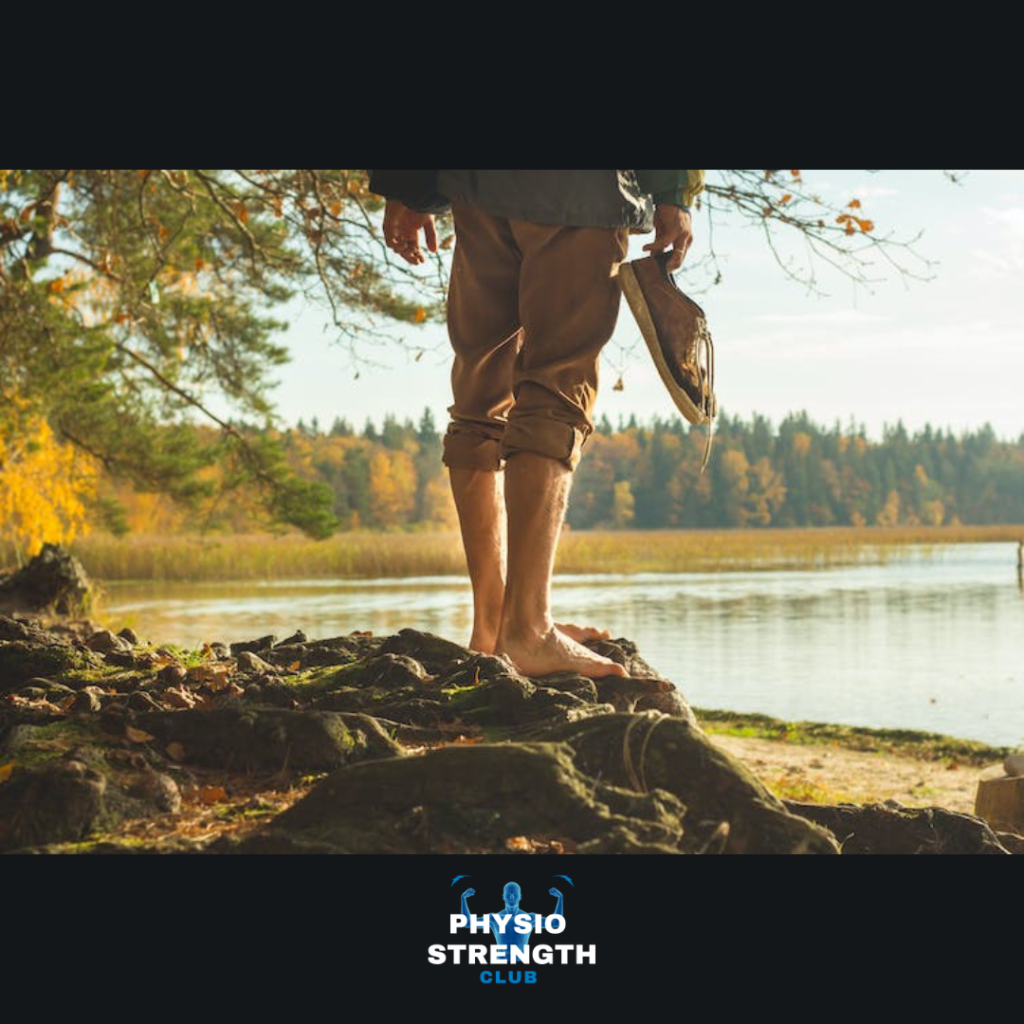Riffing off 2019’s “hot girl summer” and 2022’s “Adam Sandler summer”, online magazine The Cut has declared 2023 the year of the “barefoot-boy summer”.
American musician Mike Sabath and Euphoria actor Jacob Elordi were both papped walking barefooted earlier this year in Los Angeles. Meanwhile, Alexander Skarsgård’s Succession character (tech mogul Lukas Matsson) was also shown walking sans-shoe between private jets in the show’s final season.
Speaking to The Cut, Sabath extolled the pleasure of barefoot hiking saying it makes him, “feel more free”. He also had a top tip for any amateur bare footers – watch out for snakes. But feelings of freedom aside, is walking barefoot any good for your health?
The health benefits of barefoot walking have been reported to include decreasing inflammation, relieving anxiety and soothing chronic pain, through the mechanism of connecting skin (feet) with the earth (known as “earthing”). It has also been claimed that walking barefoot can offer improvements in balance.
But there is surprisingly little contemporary research to support these claims and less media attention has been given to lack of evidence around the long-term impact of barefoot walking.
We do know that changes to feet may occur through walking barefoot. These include increased forefoot spreading, as habitual barefoot walkers have been shown to have wider feet. What is not clear is whether these changes are positive or negative, particularly when it comes to ageing.
The risks of going barefoot
Adopting the barefoot-boy lifestyle during the summer months can pose risks to your health, however. This includes Lyme disease from forest ticks, stepping on hidden barbecues on the beach or jellyfish and weever fish in the sea.
In towns and cities, there is particular risk from walking on concrete, including sustaining foot trauma and infections. And there’s the obvious potential to step on pavement unmentionables.
Whether the barefoot lifestyle is “good for you” really depends on who you are. There are particular risks, for example, for people with neurological problems in the lower leg.
According to Diabetes UK, diabetes is becoming an increasingly prevalent health problem among younger adults. A serious effect of uncontrolled diabetes is the loss of sensation in the feet.
This means people with uncontrolled diabetes often cannot detect threats to foot damage, such as stepping on a drawing pin. This could lead to undetected foot ulceration or, in extreme cases, gangrene.
Feet and shame
The bare-foot boy summer trend is unlikely to be universally embraced. For many, bare feet are a source of embarrassment.
Ongoing research at the University of Southampton has revealed that by school age, children demonstrate that they are aware of feet being perceived as disgusting. This is a strong sentiment for a part of the anatomy we rely on for early years socialisation and exploration. https://www.youtube.com/embed/5w-fSxszrxk?wmode=transparent&start=0 A TEDx talk by Dr Emma Cowley discussed the adaptability, vulnerability and durability of the human foot.
Podiatrists report that patients often relay shame and trivialise their experiences of foot health conditions. Many patients apply nail polish, report “hiding” their feet in footwear and apply fragrances to ensure they cause least offence to the practitioner treating them.
The barefoot lifestyle isn’t fundamentally bad or good for health, but does require awareness of risk. Look after them well and your feet will take you on many adventures – whether in shoes or not.
Catherine Bowen, Professor of Podiatry, University of Southampton; Emma Cowley, Senior Teaching Fellow, Podiatry, University of Southampton, and Joanne Casey, Visiting Fellow, Podiatry, University of Southampton
This article is republished from The Conversation under a Creative Commons license. Read the original article.

